This may not sound possible, but way back in the eighties I built an above ground swimming pool at a home that didn’t have electricity. I remember it well. Using just a map, I drove way out to the other side of Lake County to a small house that looked like a shack. I had the best map you could buy and it still didn’t have all the streets on it, but I was good at finding places. It seemed to me that I was always building pools way out in the boonies. And it was always the last house on the right. As you can imagine, this place was way out in the middle of nothing.
When I arrived, I was still unaware that they had no electricity and started asking the standard questions of where did they want the pool and where did they want the pump and filter. “Pump and filter?” my salt-of-the-earth customer asked. He didn’t know what I was talking about as he just went to Rec Warehouse in Orlando and bought a swimming pool. He had no idea that a pool has to have a pump and filter. After I explained it to him, he of course wanted me to install the pool anyway and said that he would just have to figure it out later. It was only a 15’ round pool so we built it pretty quickly complete with its pump and filter pack and the pump’s cord that had nothing to plug into and we were soon on our way back to Orlando. In the eighties, electricity only came from overhead power lines and during the drive back I noticed that there were no lines going to some of the other houses and realized that my customer wasn’t the only one without electricity. Sounds crazy, huh?
For a few years after that and whenever I was way out in the boonies, I would pay attention to power lines and how they wouldn’t always reach all the homes. It’s almost unbelievable to think that there were homes as recent as the eighties in Florida that had no electricity. If I hadn’t seen it for myself, I wouldn’t believe it. Now of course electricity is everywhere. And if you are going to get a pool, you’ll need electricity. Here’s an idea of what you’ll need.
Whatever It Takes
Above ground swimming pools come with above ground pool pumps. I say this because pumps for in-ground pools are a little different. The two big differences are above ground pumps cannot draw water upward and that above ground pumps come only in 120V (volt) as they are not what is called “dual voltage”. Since pumps for above grounds only come as 120V, they all have standard three-prong plug cords attached to them. So due to these pumps having standard cords on them, the easiest way to get power to your pool is to use an extension cord connected to some outlet from the house.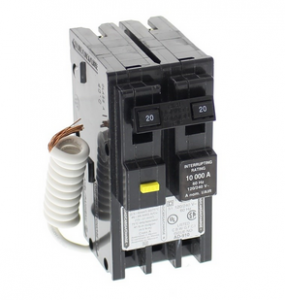
I recommend only using an extension cord temporarily until you can have a permanent power line buried that runs to the pump. Many only use an extension cord as theymay not have the money to do it right. If this is the case for you, then use an extension cord that has at least a #12 gauge wire. You really want a #10 gauge, but these cords are pricey. You want a thicker extension cord, because a pool pump requires a good amount of electricity to run. So, if the wire in the extension cord is too thin then the cord can eventually burn up or overheat causing the pump not to run. Also, because the pump uses a lot of power, the outlet that you plug the extension cord into should be on what is called a “dedicated circuit”. What’s that? A dedicated circuit or line or outlet is one that only goes to one place/outlet from the electric box. This means the outlet isn’t connected to other outlets or things that might use some of the electricity coming from the power source (box). Your pool pump is greedy. It’s going to want to have all the power available in the wire. If it shares the electricity with something else, it may cause the breaker to throw off. At that point, nothing will work until you turn the breaker back on in the electric box and that’s scary. Well, not too scary.
The Right Way to Power Your Pool Pump
So let’s say you can afford to get the proper power line run to the pool’s pump. What now? Well, if you are having an electrician do the job then he’ll figure out what he needs and may ask you to give him the requirements for the pool’s pump motor. He’ll then come out and see where your electric box is at your house and where the pump is and then depending on how much digging he has to do, will charge you accordingly. He’ll take it from there and all you’ll have to do is pay him and you’re done.

Doing It Yourself?
Here’s a list of what you need to know:
- At least a basic knowledge of electrical work
I don’t need to tell you that electricity is scary and dangerous. If you don’t know enough about it, then satisfy your DIY urges elsewhere. Work some overtime and pay someone to do this.
- Find out how many amps the pool pump needs
Amperage is the amount of electricity that runs through the electric wires. You need to know this for two reasons. One is so you can know what size breaker is needed at the electric box and the other so you know what size of wire to run to the pool’s pump. A typical above ground pool pump will require a 20-amp breaker and use #12 gauge wire to deliver the electricity.
- Does your swimming pool have any other electrical needs?
Your swimming pool equipment may have other needs for electricity. Add-ons like ozonators, ionizers, and salt chlorine generators require electricity. These add-ons usually don’t use much electricity so you won’t have to upgrade the breaker and wire size needed for the pump. If these add-ons are made for above grounds then they usually have standard three-prong plugs so you want to make sure there is an outlet for them. Above ground pool lights will also need an outlet.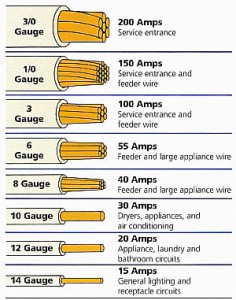
- Follow the NEC codes
I’m not one who always follows the rules, but when it comes to electricity it’s a really good idea. NEC is the acronym for National Electric Code and it can be found online or by calling your local building department or talking to an electrician. The NEC will tell you things like how far down to bury the wires, the wire size, breaker size, which weatherproof outlet to use, and grounding requirements.
- Consider getting a timer
You’ll thank me later. Most above ground pool packages don’t come with pump timers. If you don’t have a timer, you or someone you consider responsible will have to turn the pool pump on and off every day as the pump needs to run daily. A timer will do this automatically. Believe me, getting a timer is worth the extra money and hassle.
The electrical component of an above ground swimming pool is pretty important. If you have a budget, don’t cut your corners here. If you have to, don’t buy that fancy float that holds four beers so that you can get your electrical work done right.
If you have any questions on your above ground pool services then we would be happy to help, feel free to give us a call at 1-877-372-6038 or email us at upload@inyopools.com If you liked this article then make sure to sign up for Blog and get our Free 128 Page Pool Care Guide.

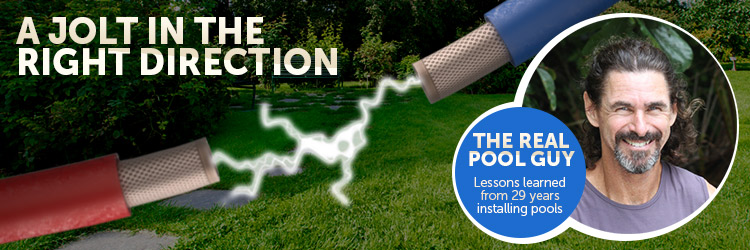
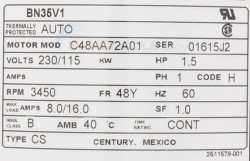
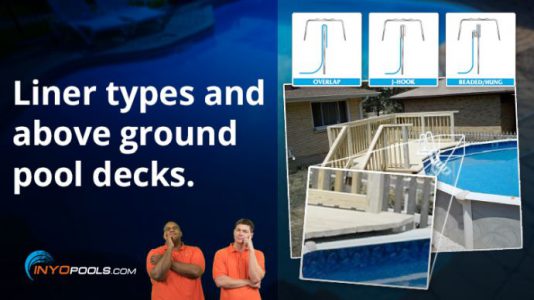

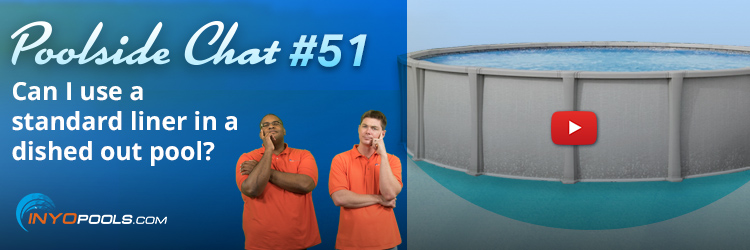
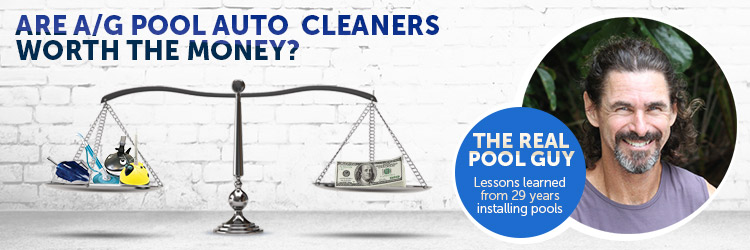






My intermatic timer has never worked for either my pool pump or my Polaris pump. I have T101R Intermatic timers. 1 1/2 Hp Superpump and a 3/4 hp polaris booster pump. 30 amp breaker and 10Guage on the former, 20 amp breaker and 12 guage on the later. In looking at the pump connection it looks like it is wired for 229 at the pumps. Could that cause the timer issue?
The T101R is a 115-volt timer. It wouldn’t be able to operate pumps that are wired for 230 volts. Are you sure that they are wired to that timer?
Yes. They operate but the timers do not. If wired for 230 wouldthe operate on a 115 circuit. Will rewire pumps to 115v and see what happens. i suspect the electrician hadnt wored a pump before.
The timer mechanism runs only runs on the unit is rated for. If they can’t wire an Intermatic T100 Series timer, you might want to find a new electrician.
I have a 115 volt 1 hp 13.8 amp pool motor.
is a 20 amp breaker and 20 amp and 125 volt GFCI
sufficent for a 110 volt 15 amp timer.
You would need a timer that is suitable for atleast 20amps , the intermatic timer that you can buy at a Home Depot or electrical supply usually starts at and is suitable upto 40amps so you’ll be allset with that one.
We are having a 24ft round pool installed this summer. I work for a company that sells wiring, breaker boxes, etc. Where can I find an itemized list of the material the electrician will need?
Hi, I’m in PA and am being told by the code inspector (who honestly doesn’t sound like he knows his stuff) that I need to have another receptacle installed outside for my 12′ x 24′ above ground pool. We already have one grounded receptacle. He stating it’s in case we want to plug in any other pool items besides the pump. Does this sound right? We will not be using another receptacle and he’s stating it’s code. He advised to look at the 2015 International residential code and the 2015 electrical international pool and spa code. Can’t find anything telling me this.
Yep. An in use gfci recept is required
To be safe, yes a GFCI is a must, knowing this ( City of Sarasota) requires a GFCI “breaker” at the source ( main supply panel ) not at the “plug in box” strange things can happen in between each point, oh by the way the box should be at least 24” off surface ( we get very wet rains here)
Have fun
This is true. The outlet for the pool is supposed to be dedicated for the pump only. They want another outlet for radios, light, etc… I can’t spout off the exact articles in the NEC that require this, but it’s there. You’ll probably need a third party inspection after your done, this is probably from your township code.
It’s true
Yes, need ‘convenience’ outlet nearby
Ok, totally confused at this moment about my pool and electrical safety requirements. First, the pool is an 18’x48” Summer Waves metal framed temporary pool. As it comes with a seriously cheap and weak skimmer pump (SFX1000), I am investing in a Hayward S166T 16” sand filter with a 1 HP pump 110v. I will be converting the skimmer to be used with the sand filter.
If the Hayward pump is attached to a GFCI Plug out near the pool location, is bonding necessary? If so, is bonding to equal parts of the frame necessary? Water bonding? The ladder is removed after use each time.
I am having a dedicated electric line installed here soon but until then will use a 12 g heavy duty extension cord with a GFCI plug in. Thanks for any help.
The chart is great so the gauge wiring won’t be an issue. I’m interested in running a dedicated pool circuit and an additional 2 outside outlets for a smoker and lights.
My question is regarding running the conduit. Is it allowed to attach the conduit to the side of the house and then route up underneath my deck and back down or does it have to be buried in the ground?
Can I use an existing 12/2 UF/B wire to connect to my pump. It is in a conduit
I guess it would depend on what you are wiring and its electrical requirements. If your circuit is going to exceed the capabilities of the wiring, then you shouldn’t do it.
We got an above ground pool late last summer. We didn’t get the electric done until after pool was closed. They put in a twist plug. Pump plug doesn’t match. What do we do?